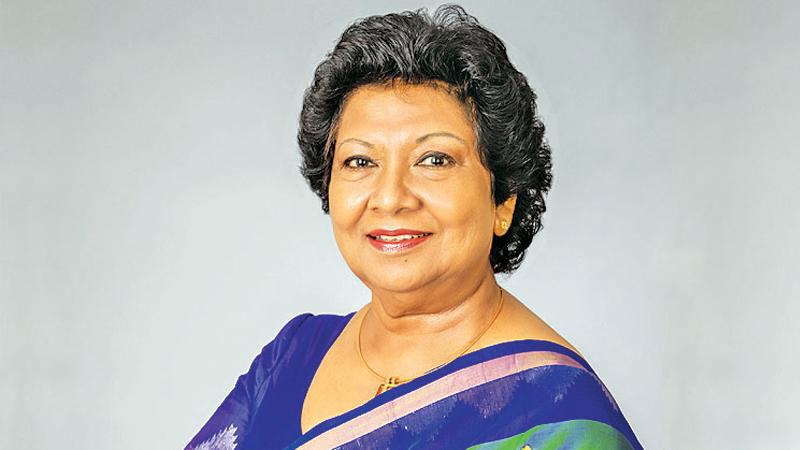
In the wake of the apparel industry, the single largest export industry of the country, being shaken by the global pandemic, Sri Lanka should be prepared to grab international market opportunities through agriculture products, Chairperson of the National Chamber of Exporters, Ramya Weerakoon told Sunday Observer Business on Friday.
Some companies including giants in the industry have now started producing Personal Protection Equipment (PPE) and facemasks diversifying their product portfolio. However, it is a very short term plan. She believes that the Sri Lankan entrepreneurs must look into more sustainable market opportunities.
Weerakoon, who first stepped into the world of business through batik and mainstream apparel products, predicts that it will take at least two more years for the apparel industry to recover.
“We see a revenue drop of around 60 percent in apparel exports due to Covid-19. Especially SMEs in the industry face severe difficulties. Most of them are now either closed or operate with many hindrances including pay cuts for staff,” she said.
The global demand for agricultural products has remained high. Especially value-added food products in addition to the traditional agro-products such as tea, rubber and coconut are not affected by Covid-19, Weerakoon said.
Ramya Holdings (Pvt) Limited entered the field of horticulture in the late 90s and created a global market for many horticulture products including rooted plants, un-rooted cuttings, cut foliage and tissue culture-raised plants.
“As a country, we have failed in agriculture,” she said, adding “The responsibility of the Government is to develop the infrastructure for agriculture. For instance, we need certain areas allocated for certain agriculture products. Lands should be allocated for agri based entrepreneurs. Another requirement is importing good quality seeds. As per my understanding, Sri Lanka is far behind in that kind of agri-technology.”Amalgamating all government institutions related to agriculture under one umbrella is a need of the hour. Such a move is a dire need to provide services to entrepreneurs in the industry, she said.
“We must take all these institutions and create a one-stop-shop for agriculture,” she said.
As many international trade fairs have been cancelled due to Covid-19, a key platform for local producers to grab a share of the international market has been hampered. Nonetheless, Weerakoon thinks that as the digital platform is now advanced, Sri Lankan entrepreneurs could find opportunities easily. “We have enough markets for quality products but we do not have adequate products,” she said.
“For instance, Sri Lankan pineapples are the best in the world. If we produce quality pineapples there will be no competition in the global market,” she said.
However, she thinks, the difficulty to obtain a good return on investments for the next two to three years is a reason for lack of enthusiasm to develop agriculture.The government elected in 1970 worked hard to boost local production, which ended up in dissatisfaction among people, and led to opening the doors for an open economy in 1977. Weerakoon, an active businesswoman of both economic models, believes Sri Lanka should strike a balance between the two economic models.
“I do not recommend stopping imports completely. In the 1970s imports were completely banned and as a result people faced difficulties. When the economy was liberalised in 1977, imported goods flooded the local market. This led to the downfall of many industries including the cottage industry,” she said.
Ideally, Sri Lanka should classify agriculture products which can be easily developed in the country and then to encourage such products by banning the import of similar products, she said, adding that we first need to be self-sufficient. Then we can think about exports.
